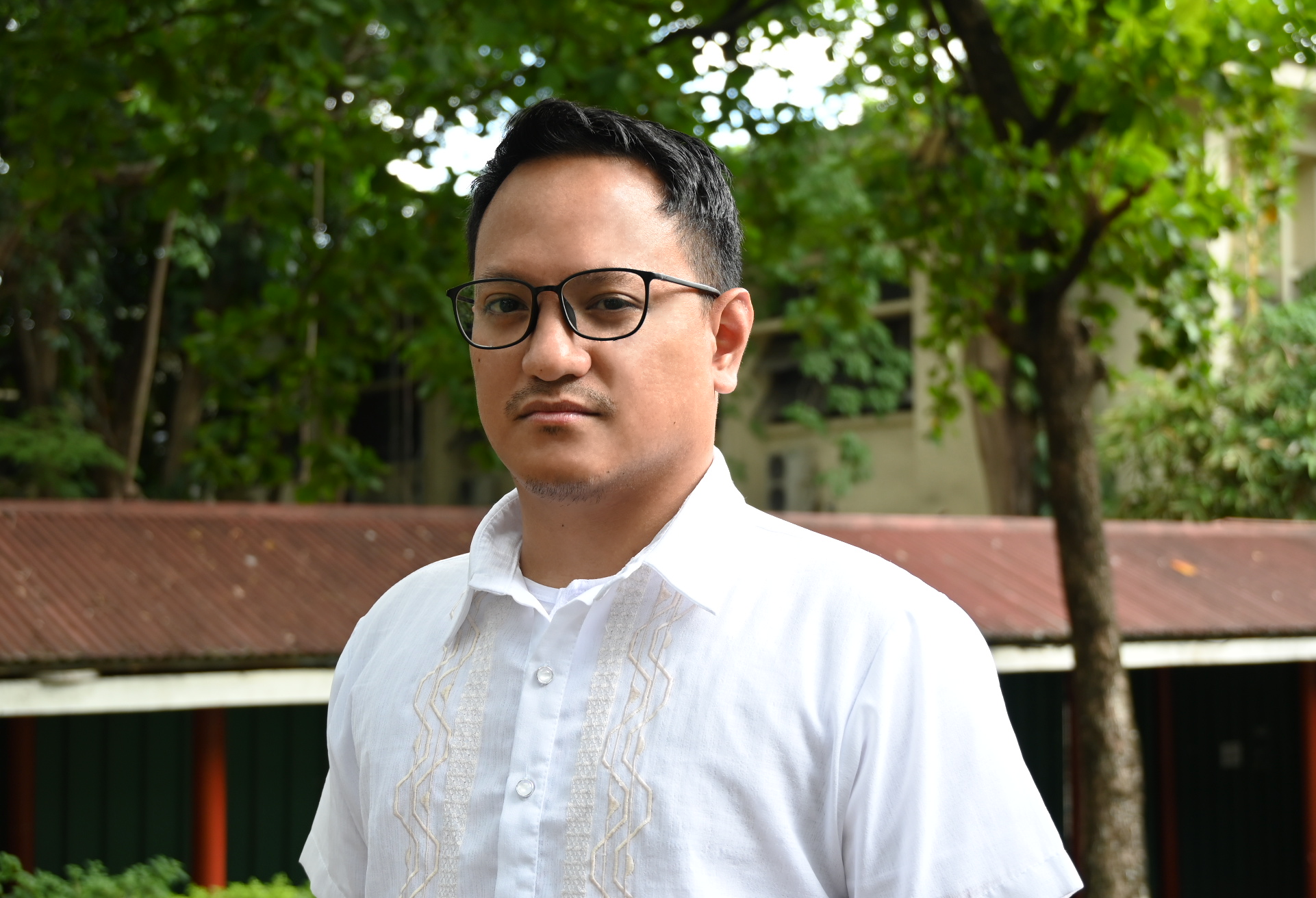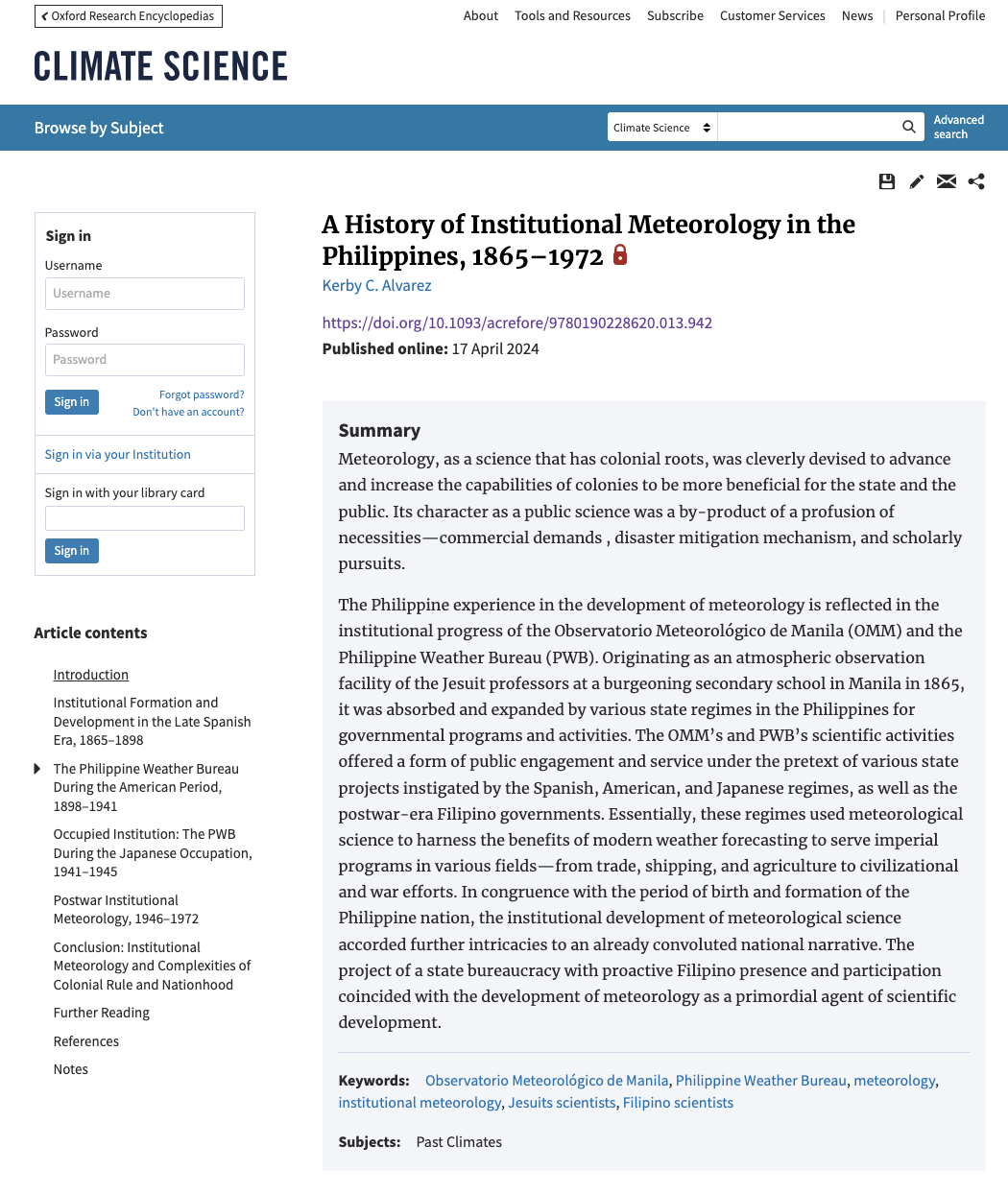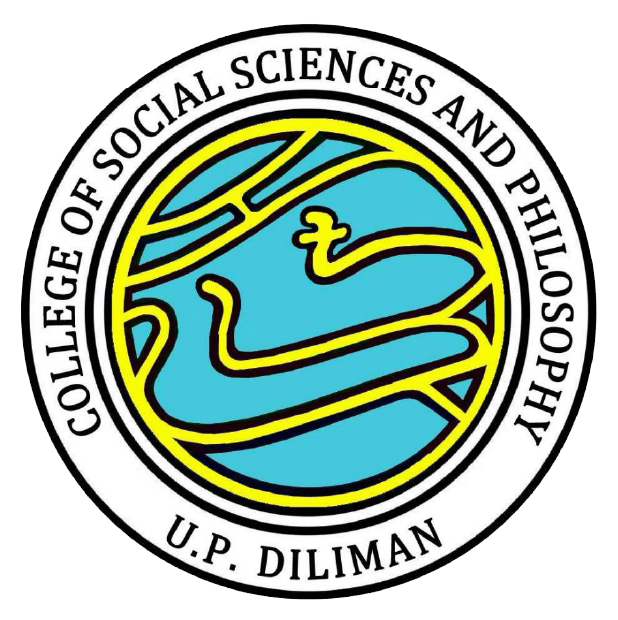A History of Institutional Meteorology in the Philippines, 1865-1972
Oxford Research Encyclopedia of Climate Science
Meteorology, as a science that has colonial roots, was cleverly devised to advance and increase the capabilities of colonies to be more beneficial for the state and the public. Its character as a public science was a by-product of a profusion of necessities—commercial demands, disaster mitigation mechanism, and scholarly pursuits.
The Philippine experience in the development of meteorology is reflected in the institutional progress of the Observatorio Meteorológico de Manila (OMM) and the Philippine Weather Bureau (PWB). Originating as an atmospheric observation facility of the Jesuit professors at a burgeoning secondary school in Manila in 1865, it was absorbed and expanded by various state regimes in the Philippines for governmental programs and activities. The OMM’s and PWB’s scientific activities offered a form of public engagement and service under the pretext of various state projects instigated by the Spanish, American, and Japanese regimes, as well as the postwar-era Filipino governments. Essentially, these regimes used meteorological science to harness the benefits of modern weather forecasting to serve imperial programs in various fields—from trade, shipping, and agriculture to civilizational and war efforts. In congruence with the period of birth and formation of the Philippine nation, the institutional development of meteorological science accorded further intricacies to an already convoluted national narrative. The project of a state bureaucracy with proactive Filipino presence and participation coincided with the development of meteorology as a primordial agent of scientific development.
The Philippine experience in the development of meteorology is reflected in the institutional progress of the Observatorio Meteorológico de Manila (OMM) and the Philippine Weather Bureau (PWB). Originating as an atmospheric observation facility of the Jesuit professors at a burgeoning secondary school in Manila in 1865, it was absorbed and expanded by various state regimes in the Philippines for governmental programs and activities. The OMM’s and PWB’s scientific activities offered a form of public engagement and service under the pretext of various state projects instigated by the Spanish, American, and Japanese regimes, as well as the postwar-era Filipino governments. Essentially, these regimes used meteorological science to harness the benefits of modern weather forecasting to serve imperial programs in various fields—from trade, shipping, and agriculture to civilizational and war efforts. In congruence with the period of birth and formation of the Philippine nation, the institutional development of meteorological science accorded further intricacies to an already convoluted national narrative. The project of a state bureaucracy with proactive Filipino presence and participation coincided with the development of meteorology as a primordial agent of scientific development.
Keywords
Observatorio Meteorológico de Manila
Philippine Weather Bureau
meteorology
institutional meteorology
Jesuit scientists
Filipino scientists
Faculty Involved:

Kerby C. Alvarez, Ph.D.
Professor
Focus: Environmental History, History of Hazards and Disasters in the Philippines, Philippine Nationalism, Popular Culture, Local History of Malabon



